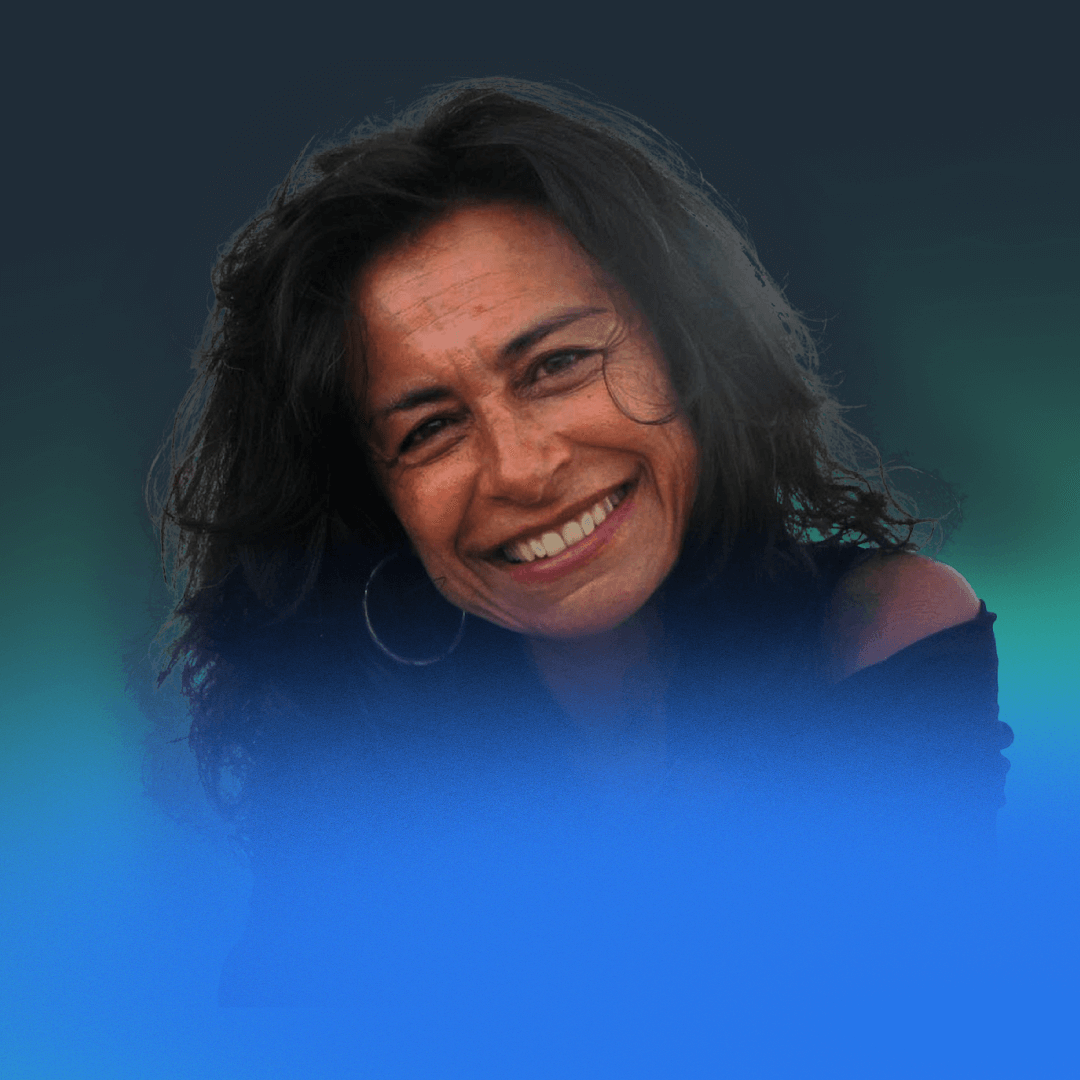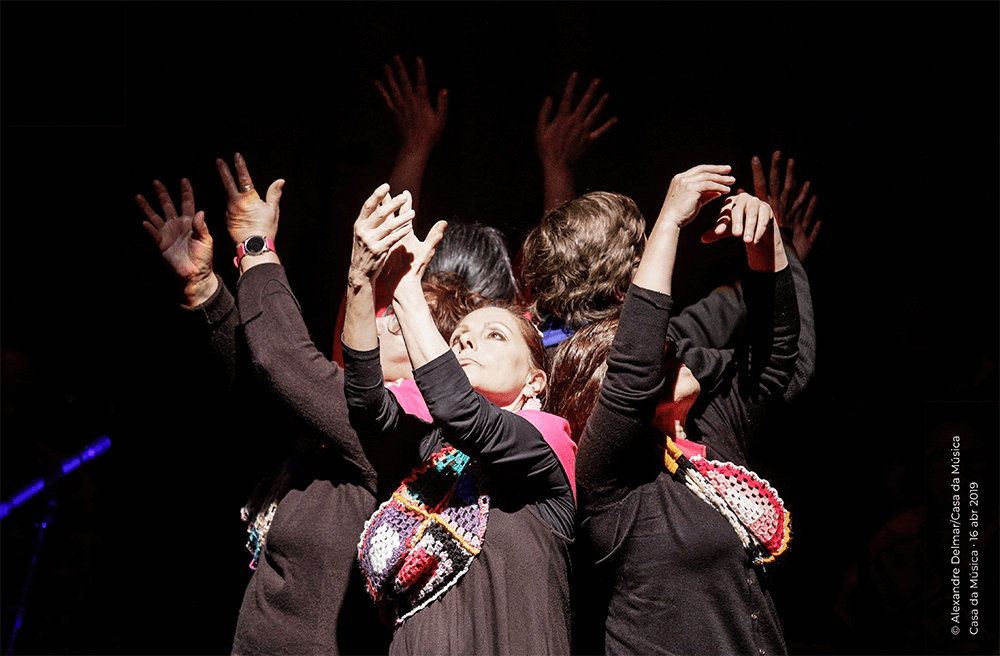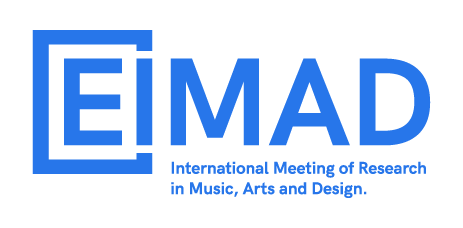
Professor, Pianist and Singer-songwriter
www.palui.pt
BIOGRAPHY
Helena Caspurro, born in Porto, where she lives, is an Auxiliar Professor at the Department of Communication and Art (DeCA) at the University of Aveiro (UA), an integrated researcher at the INET-md and a collaborating at the CESEM (Nova de Lisboa), university where she also taught. Pianist, singer-songwriter, in a jazz and fusion genre, she has edited three original CDs, Mulher Avestruz (2003), Colapsopira (2009) and Paluí (2013), the last of which constitutes the musical genesis of artistic research projects that she develops in an educational context and in the Portuguese community, in co-authorship with Pedro Carvalho de Almeida, designer and teacher at DeCA. Of the numerous participants, there are students and teachers of music and design from the UA, more than six hundred children from the elementary schools of Santa Maria da Feira and their teachers, as well as, achieving social and inclusive objectives, such as combating the stigma of mental illness, users and patients of the Psychiatric Hospital Magalhães Lemos (Porto), students and teachers of the Polytechnic Institute of Porto, the Art and Quality Childhood Center of Aveiro and artists from Casa da Música. From these projects, several works and initiatives were germinated and presented in the country, all resulted from artistic, transdisciplinary, collaborative and co-creation processes, such as: the edition of the book Paluí: Viagem sonoras que a Língua Portuguesa conta (2017), videos, workshops, exhibitions, sound and interactive artifacts, music and theater performances, and, finally, the musical and transdisciplinary concert, Paluí, está aqui? Histórias sonoras para cantos interiores, presented at the festival Ao Alcance de Todos, at Casa da Música (2019) – edited in Documentary and Film-Concert (2020). At the invitation of the Educational Service of this last institution, she was artistic and pedagogical director of musical and scenic concerts that she created and presented in both of its concert halls (2011; 2013), and, at the invitation of the APEM, she composed Coculi (2018) for the Cantar Mais website. She works regularly with the percussionist Brendan Hemsworth in the production of her musical work. Paulo Neto, António Miguel, Filipe Lopes are musicians with whom she collaborates in the creation and coordination of the various transdisciplinary and artistic projects she directed, together with José Geraldo (actor), Patrícia Costa (costume designer), António Valente (filmmaker), Marcelo Baptista (image projection), António Oliveira (staging), Carlos Silva (videoart), Miguel Almeida and João Neto (video design). She recorded and shared artistic activity with several musicians, such as Elizabeth Davis, Arnaldo Fonseca, António Aguiar, Carlos Mendes, Pedro Lima Pereira, Andrés Tarabbia (Pancho), Mário Santos, Pedro Almeida, Nuno Aragão, António Miguel (Tomi), Diana Basto, among many others. The improvisation in musical learning, to which she dedicated her doctoral dissertation (2006), is one of the objects of choice in guiding the subjects that she teaches and develops as educator and musician. Her musical and artistic activities also include: participation in radio programs and soundtracks of one Portuguese soap; the presentation as a guest performer at Tedx-Aveiro (2013) and, as a singer, in concerts in Portugal with the Filarmonia das Beiras orchestra; editing several video clips, in collaboration with other authors and the Cine Clube de Avanca, some of which were selected at numerous international film festivals, such as Navegar, which was nominated in 2014 at the International Children’s Film Festival in Lucknow (India). She hopes to publish his new musical work and CD, Massaiá, in 2023.
Transdisciplinary experiences of artistic co creation germinated in music: engaging school and society
It is increasingly assumed that education is a construction that cannot be disconnected from society itself – its work, geographies and cultural meanings; its continuous movement; its individuals and agents who represent and transform it, even beyond the school. The commitment and responsibility of everyone in this complex and unfinished task are therefore ingredients of cultural projects in contemporary democratic societies, enshrined in initiatives, philosophies and ministerial programmes that require constant reflection, improvement and creativity. Perhaps for the same reasons, i.e. everyone’s commitment to achieving common cultural goals, there are growing visions of the arts as objects and spaces for social construction. Participatory practices in the arts, including music in the community, show this growing phenomenon, mobilising processes, methodologies and paradigms of study which, in their epistemological diversity, have made it possible to experience, demonstrate, describe and characterise, tacitly or verbally, the vast meanings of the experiences carried out. Reflecting the complexity that characterises contemporary societies in their purposes and modes of action, they have resulted in a multifaceted set of initiatives aimed at specific communities, with programmes designed to respond to problems that are also unique, generally surrounding the vast issue of social exclusion. Educational contexts, such as primary, pre-school and higher education curricula, their practices and programmes, due to the need not only to constantly articulate with cultural society, but also to broaden the concepts of literacy around which teacher training practices are designed, are also universes of study and research with social, pedagogical and artistic value and scope.
The aim of this communication is to present a set of projects that were born out of the author’s music, with social and artistic purposes, and which, taking the form of (co)creative and transdisciplinary experiences, were created and implemented under her direction, as a researcher, musician and teacher, and other specialists from the Department of Communication and Art at the University of Aveiro (UA), such as designer Pedro Carvalho de Almeida, in different communities and educational universes across the country. Involving close to a thousand people, they are mainly concerned with research born out of Paluí (2013) and which, associated with the construction of common cultural objectives, such as the development of curricula, musical and transdisciplinary creation and the fight against the stigma of mental illness – which resulted in the publication of a book (2017) and, among other events, the presentation of a performance at the Ao Alcance de todos Festival at Casa da Música (2019) – mobilised, in a context of social, cooperative and artistic co-creation engagement, music and design students and teachers of UA and, respectively: 1) communities in Santa Maria da Feira (primary and pre-school students and teachers); 2) patients at the Magalhães Lemos Hospital in Porto (users of the Psychosocial Rehabilitation Service), music students and lecturers from the Polytechnic Institute of Porto, educators and children from the Aveiro Arts and Quality Centre and artists from Casa da Música. Although with eminently aesthetic purposes but representing a conceptual and methodological continuity that began with Paluí, a brief exhibition of transdisciplinary works resulting from the author’s most recent musical creation, Massaiá (2023), will finally be shown. In addition to the contemplation of the results of any of these projects, made possible, even if not in their entirety, by the presentation of images, objects and videos, the aim is to share and provoke critical reflections on issues such as music, the arts and education, their connection with society, highlighting, in the analysis, the role of creativity, transdisciplinarity and collaborative processes; resulting from this, the change in the definition of the roles of the artists themselves, including music teachers, in order to respond to the challenges posed by the type of social and cultural commitment in which they are involved.




